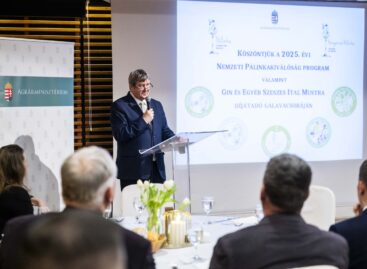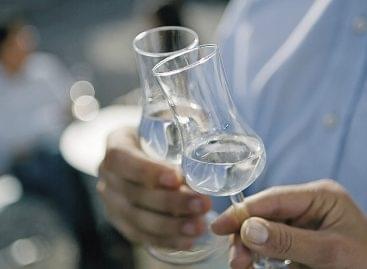Pálinka – before and after COVID
László Mihályi, president of the National Council of Pálinka (PNT) summarised the pálinka situation of 2020-2021 for our magazine.

László Mihályi
president
National Council of Pálinka
On average 80 percent of the sales of commercial distilleries is realised in the HoReCa sector. When the state of emergency was declared, the majority of pálinka’s market disappeared. In practice this means that pálinka makers are running at less than 50 percent of their production capacity. This has also entailed that they purchase less fruit than in former years. Some distilleries had to lay off the majority of workers.
It very much seems that bars and restaurants will remain closed at least until March. Since there is no sales revenue for businesses in the sector for 5 months, survival is nigh impossible without help from the government. About 2,000 jobs at 200 companies are in danger. Plus pálinka makers would need the same marketing budget from the state after the pandemic that winemakers were given.
It can only be estimated how much spirit is distilled for home consumption, but it is definitely more than the volume of commercial and subcontract distilling combined. Since the majority of home-distillers don’t register their activity and don’t pay taxes, no change can be expected in this field. //
New legislation
From 1 January both the home and the subcontract distilling of 86 litres of 50 percent abv pálinka is tax-free. Below this volume home distillers don’t have to buy the formerly mandatory HUF 700 revenue seals per litre either. As for subcontract distilling, last year’s HUF 1,800 for one litre of 50 percent abv pálinka has reduced to HUF 1,100/litre on average. //
Aged on a fruit bed in 2020
Four Hungarian fruit bed aged pálinkas were certified by the National Pálinka Excellence Programme in 2020: Árpád és Vadász Pálinka distillery’s Árpád Champion 2018 Double Fruit Bed Aged Pear Pálinka was selected Top Pálinka of Excellence, while the pálinkas of another three distilleries earned the Pálinka of Excellence title. 138 pálinkas of 20 distilleries participated in the programme. //
Related news
Pálinka, my love…
🎧 Hallgasd a cikket: Lejátszás Szünet Folytatás Leállítás Nyelv: Auto…
Read more >Family distilleries in the face of market pressure – the everyday life of a pálinka distillery in Zala
🎧 Hallgasd a cikket: Lejátszás Szünet Folytatás Leállítás Nyelv: Auto…
Read more >Related news
The Székely counties will present themselves with a joint stand at the 48th Travel Exhibition
🎧 Hallgasd a cikket: Lejátszás Szünet Folytatás Leállítás Nyelv: Auto…
Read more >(HU) Kilincsem rángatta ordítva… – A nap képe
🎧 Hallgasd a cikket: Lejátszás Szünet Folytatás Leállítás Nyelv: Auto…
Read more >(HU) Pszeudopulykasült – A nap videója
🎧 Hallgasd a cikket: Lejátszás Szünet Folytatás Leállítás Nyelv: Auto…
Read more >








